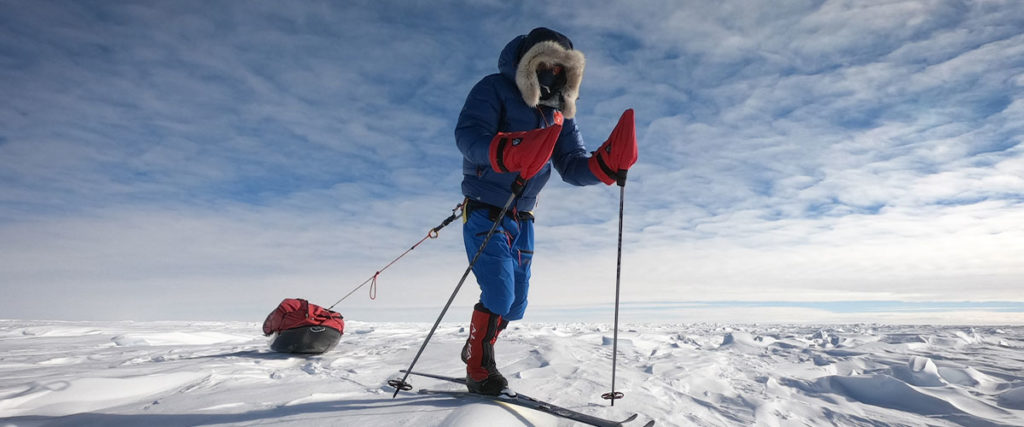If you’re reeling from the uncertainty of the pandemic, you’re not alone. Here are 7 self care tips from polar explorer Matthieu Tordeur.
In a world where job losses could hit 47 million in the US alone, 1.37 billion students worldwide are learning from home, global coronavirus cases have surpassed the 2.4 million mark, and social distancing measures have upturned our daily routines, it’s not surprising that many feel overwhelmed by the gargantuan changes that are currently sweeping through our societies and economies.
We talked to polar explorer Matthieu Tordeur – a man who spent 50 days painstakingly embarking upon an 1150-km solo Antarctic expedition to the South Pole in November 2018, aged 27 – about the 7 self care tips that helped him get through the isolation, the pain and the uncertainty of the journey.
1. Establish a Sense of Control
“You need to focus on things you can control – things like dealing with your day, your hydration, your food.”
When you’re living in a turbulent environment, “You need to focus on things you can control – things like dealing with your day, your hydration, your food,” Matthieu advises. “If you only focus on the end of the experience, on the finish line, you can start to lose motivation because it is just too far away.”
Harking back to his polar exploration, he recalls, “I had to try put aside the bad weather, the snow, the isolation – all the things that you can’t really change.” Instead, by narrowing your perspective down to the things you can influence, you begin to stabilise your everyday life and regain a sense of a new normal.
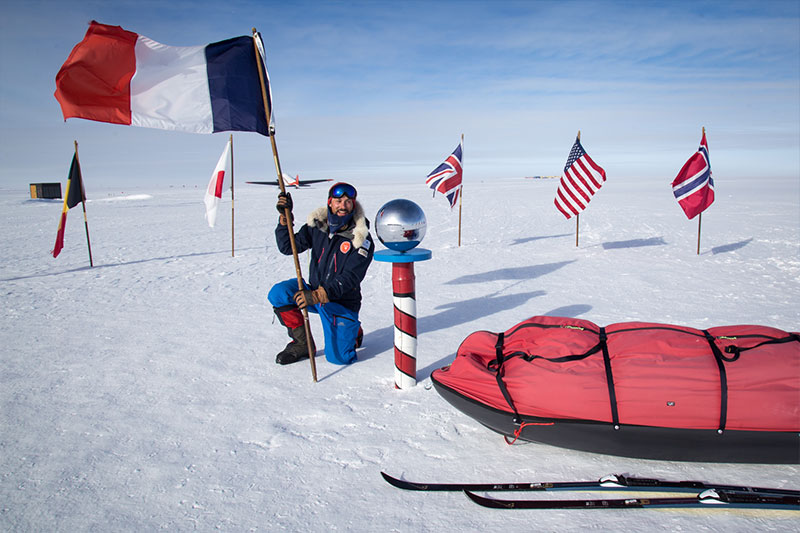
2. Set Short-Term Goals
If you’re feeling overwhelmed by the uncertainty of when the lockdown will end, when the economy will pick back up, or even whether you’re wearing a mask correctly, one of the most helpful self care tips is to set manageable short-term goals that give you a sense of achievement and keep you going, one step at a time.
“It was a way for me to progress because the small goals were small victories,” Matthieu relates. “I was breaking my days into one-hour ski sessions and I was just focusing on the next hour. I’d ski for an hour, then take a five-minute break. So I would do six hours of skiing in the morning and six hours of skiing in the afternoon. And I would never think about the next day or the finish line.”
3. Adopt a Problem-Solving Mindset
When things go wrong – and inevitably, something will, it’s important to step back, reassess the situation and find ways to improve the status quo. “When you end up in a bad situation, you need to immediately put a plan into action and not yield to panic and that was my way of dealing with it,” Matthieu says.
Recalling his first day when he’d taken off his skis and fallen into a deep hole, he recalls, “I wasn’t very scared or in a state of panic, both because things had happened very quickly, but also because as soon as I fell into this hole, I immediately focused on, ‘Okay, this happened. How do I get out of this situation? What should I do?”
Keeping the problem-solving momentum going, even in the face of adversity, will help you feel more in control, allowing you to tackle new challenges head-on.
You might also like NASA’s First Australian Astronaut Shares His First-Hand Experiences in Space
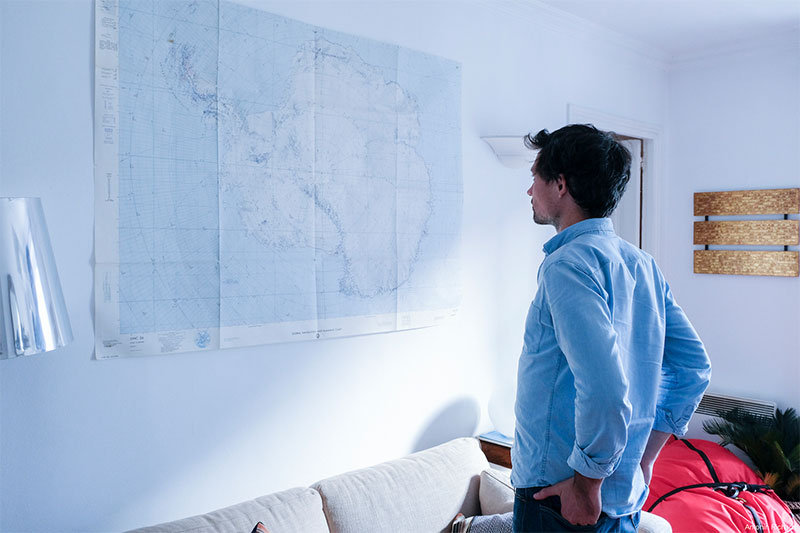
4. Preparation Helps Manage Uncertainty
Uncertainty is everywhere – whether that’s questioning when a lockdown will be lifted, or whether you’ll have a job tomorrow. In such a climate, preparation can help you regain a sense of control by helping you anticipate future challenges and construct contingency plans to have at the ready in case things fall through. “I try to plan everything and have a plan C,” Matthieu relates.
At the same time, however, preparation can only get you so far. “It never happens the way you imagine, but that’s okay. You just need to adapt to a new situation and figure out how you can get out of the situation or reach the goal you’ve set. Dealing with uncertainty is just part of the trip, part of the adventure. And the idea is just to manage it.”
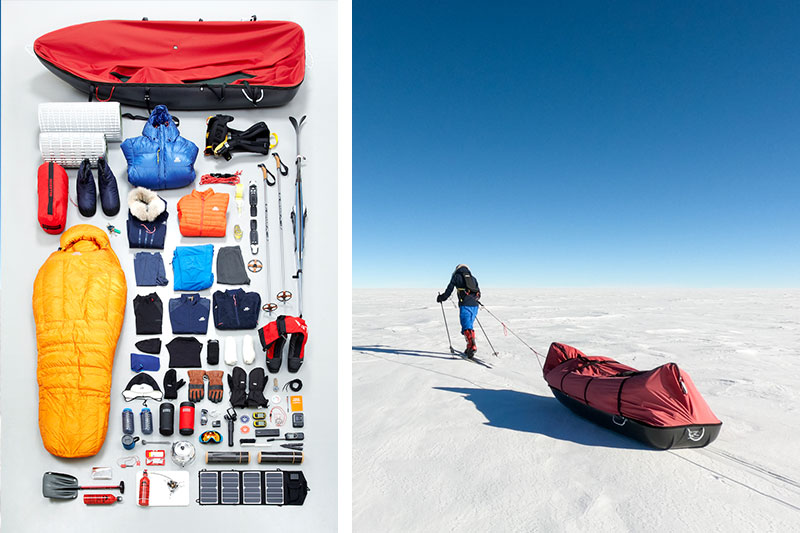
5. Be Proactive About Meeting Your Own Needs
“Taking care of yourself means taking action now and not waiting for things to happen on their own,” Matthieu relates, “You want to take care of your body.” Rather than being complacent about your own physical and mental health, he recommends staying alert, regularly checking in with yourself, and taking concrete steps to look after yourself better, whether that’s scheduling a Zoom call with a friend or changing into work clothes to shift gears and build up motivation – all vital self care tips when you’re going through a trying time.
Recalling the harsh conditions during his polar expedition, he explains, “Sometimes you’ll think, ‘Oh, it’ll be alright,’ and you know that you could make the situation better right now, but just because you’re lazy, you don’t do it,” he says. “When I was journeying to the South Pole, sometimes I’d take more time than I needed to put another layer on. And I’d end up losing so much more energy and time than if I’d just gone to reach for that extra layer in the first place.”
6. Remind Yourself This is Temporary
Whatever your situation, there will be times when the pandemic gets you down, whether that’s because of fear or sadness or panic. However, as with all things, both good and bad, it is worth taking a step back to acknowledge these feelings are momentary.
“When I was really, really tired or cold and depressed, I would try to convince myself that this would not last forever. And I realised I could overcome the pain or frustration by focusing on the fact that it was temporary – that it would not last for my whole life. It would come to an end,” Matthieu relates.
“On an adventure, it will be cold, miserable and tough. But the suffering is in your mind. You can choose to suffer from it, or you can focus on the fact that it would not last forever – there will be better days and I will focus on this next step and the next day and the day after.”
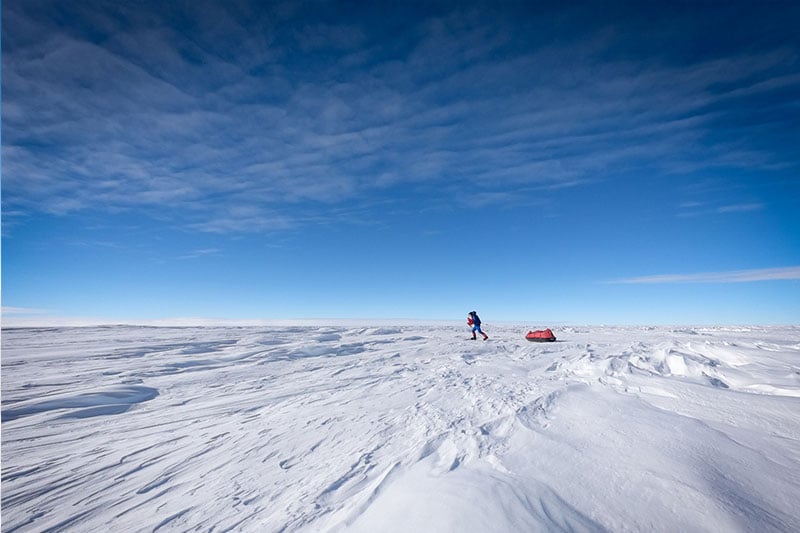
7. Remember to Laugh
“It felt so immensely incredible to laugh. And that’s how I realised that humour was something really important in our lives. It lifts your spirits and your mind.”
Amidst the barrage of negative sentiments and fear-mongering headlines, it’s one of the most important self care tips to take the time to bring some joy into your life through laughter, even if you’re self-isolating at home.
Reflecting upon the isolation of his polar expedition, Matthieu says, “I laughed while listening to this podcast and I remember writing in my diary that I hadn’t laughed in two weeks – that’s something that doesn’t really happen in normal life. And it felt so good, so immensely incredible to laugh. And that’s how I realised that humour was something really important in our lives. It lifts your spirits and your mind.”
All photo credits go to © Matthieu Tordeur.
More about Matthieu Tordeur
Professional explorer and Guinness World Record Holder Matthieu Tordeur has cycled across Europe, Africa and Asia, run 6 marathons back-to-back in the Sahara, a marathon in North Korea, crossed the Atlantic on a sailing boat, and driven around the world in a 30-year-old Renault 4 to promote microfinance. In 2018, he embarked upon his biggest adventure yet – a 1150-km solo polar expedition from the Antarctic coast to the South Pole, documented via a VR documentary. He is now the youngest person to reach the South Pole solo, unsupported and unassisted, and is currently in the process of writing a book on resilience, risk-taking, and motivation. More information on Matthieu can be found on his website and Instagram.
Related Articles
Off the Grid: Polar Explorer Ben Saunders Defines His Limit-Defying Career
An Explorer’s Calling: Henry Cookson on Navigating Uncertainty, Fear & Inspiration
British Adventurer Rob Lilwall Shares His Thoughts on Embracing Challenges
